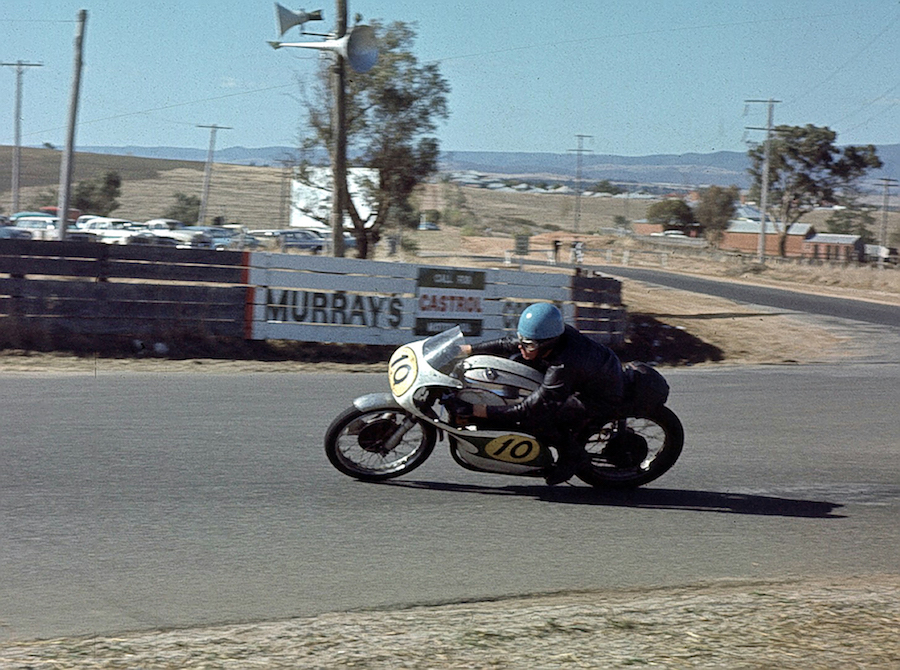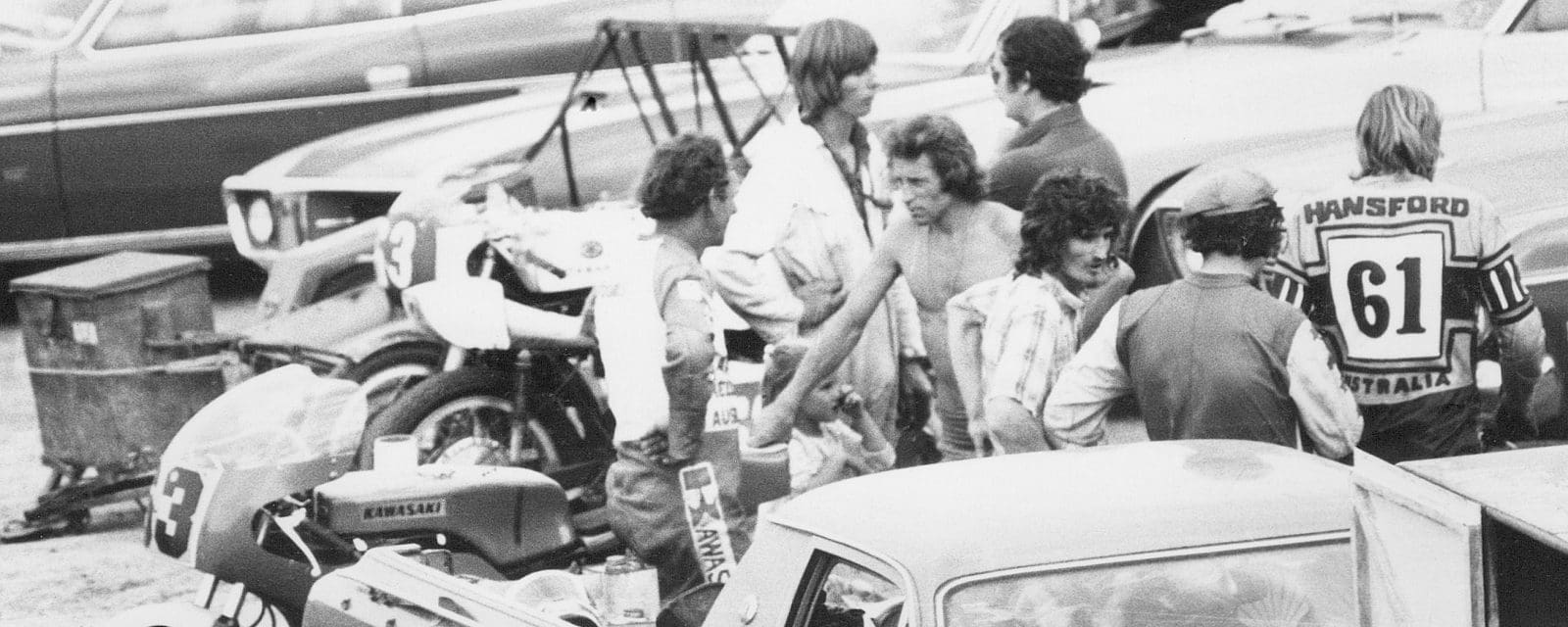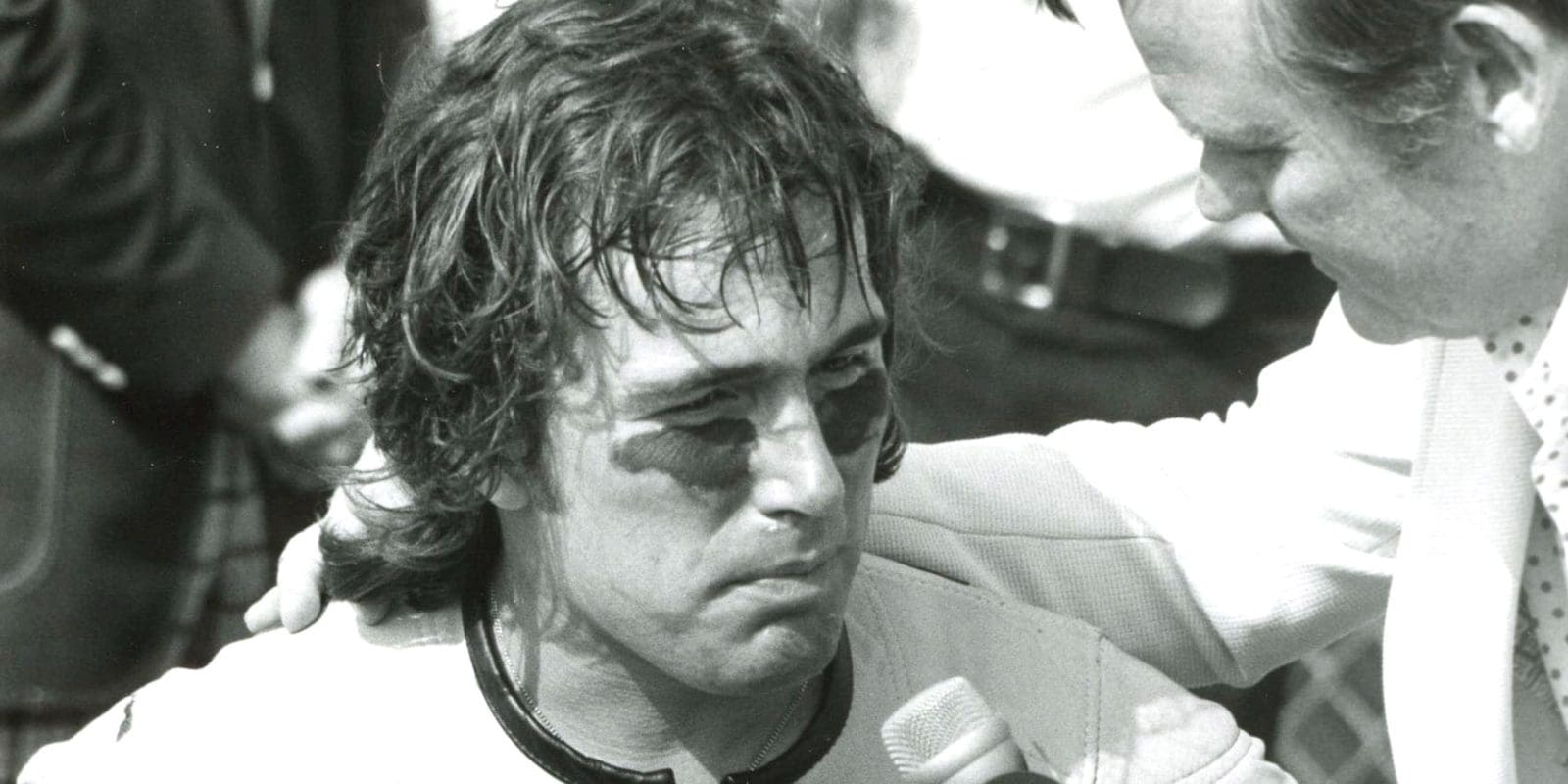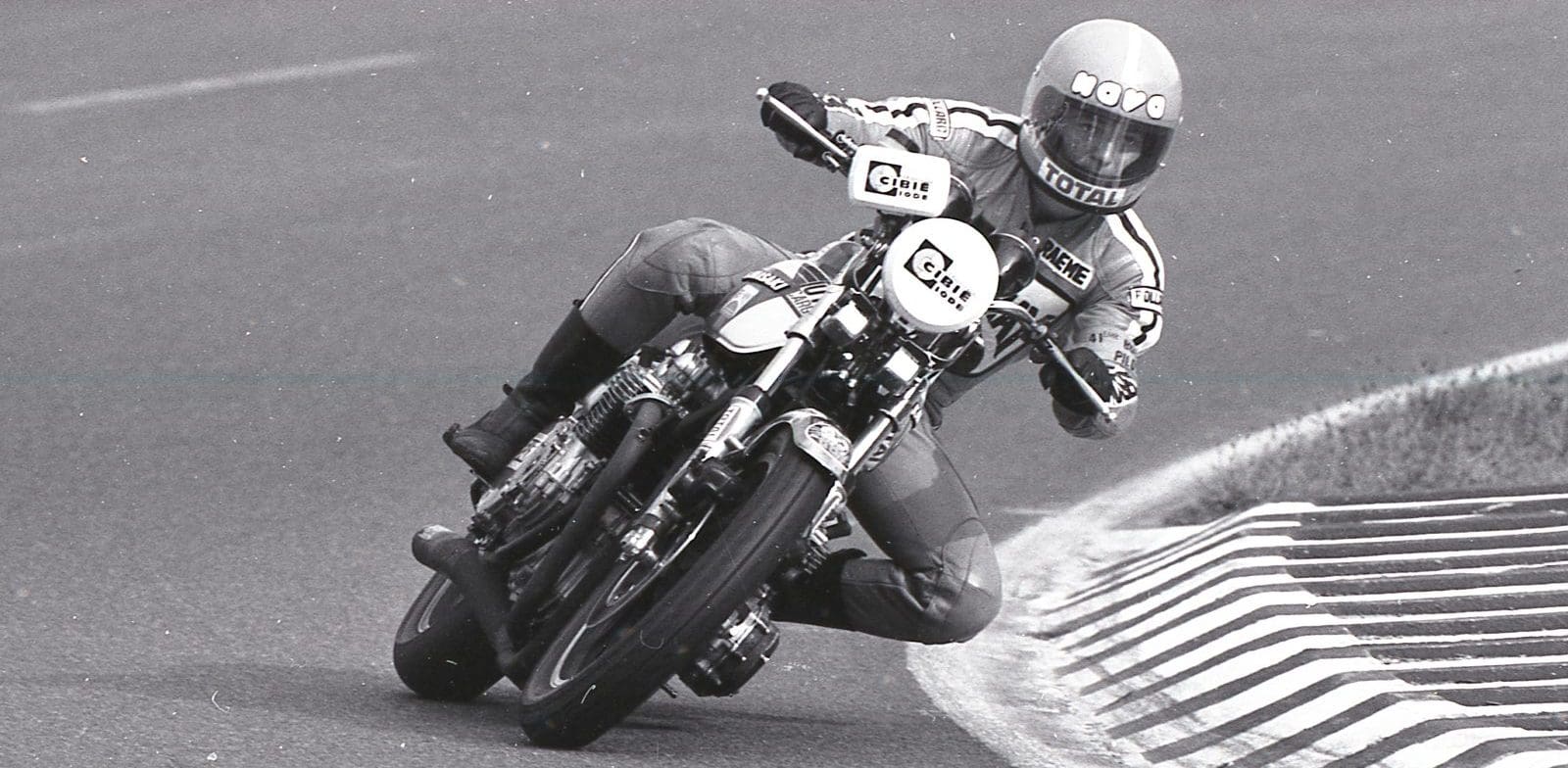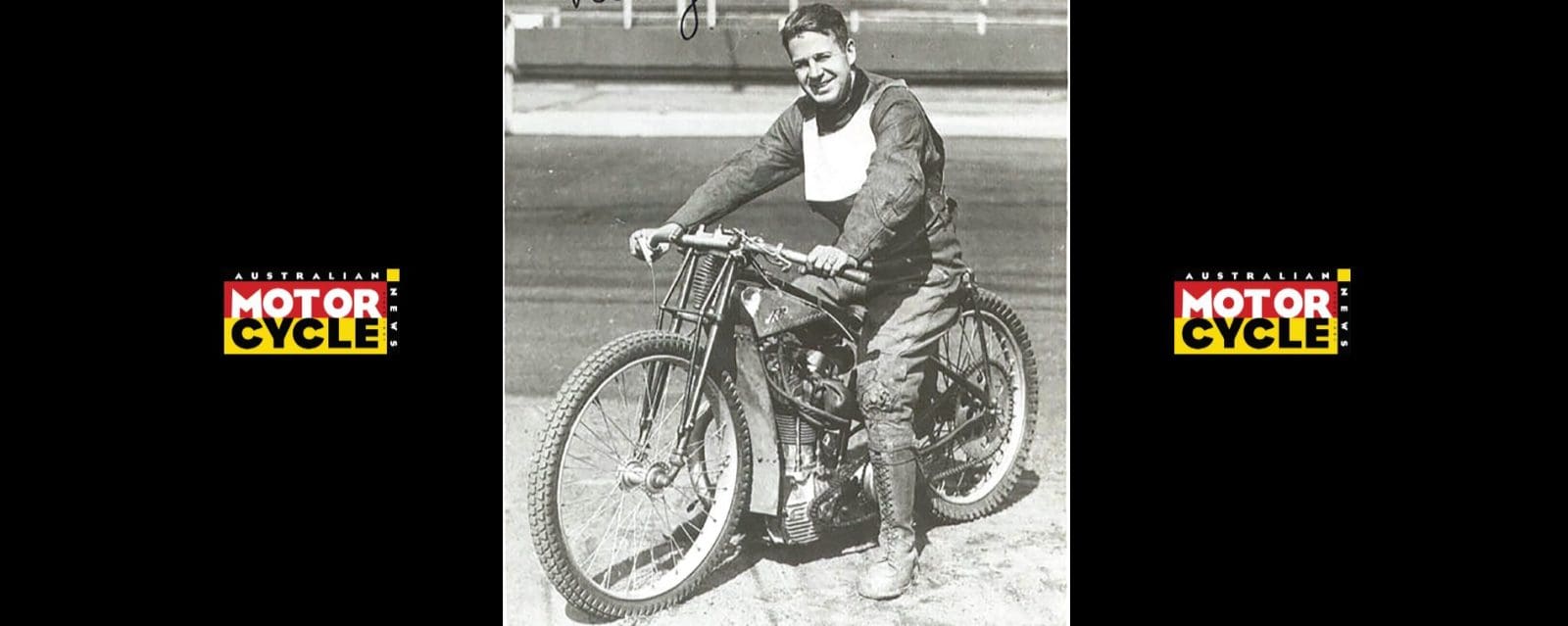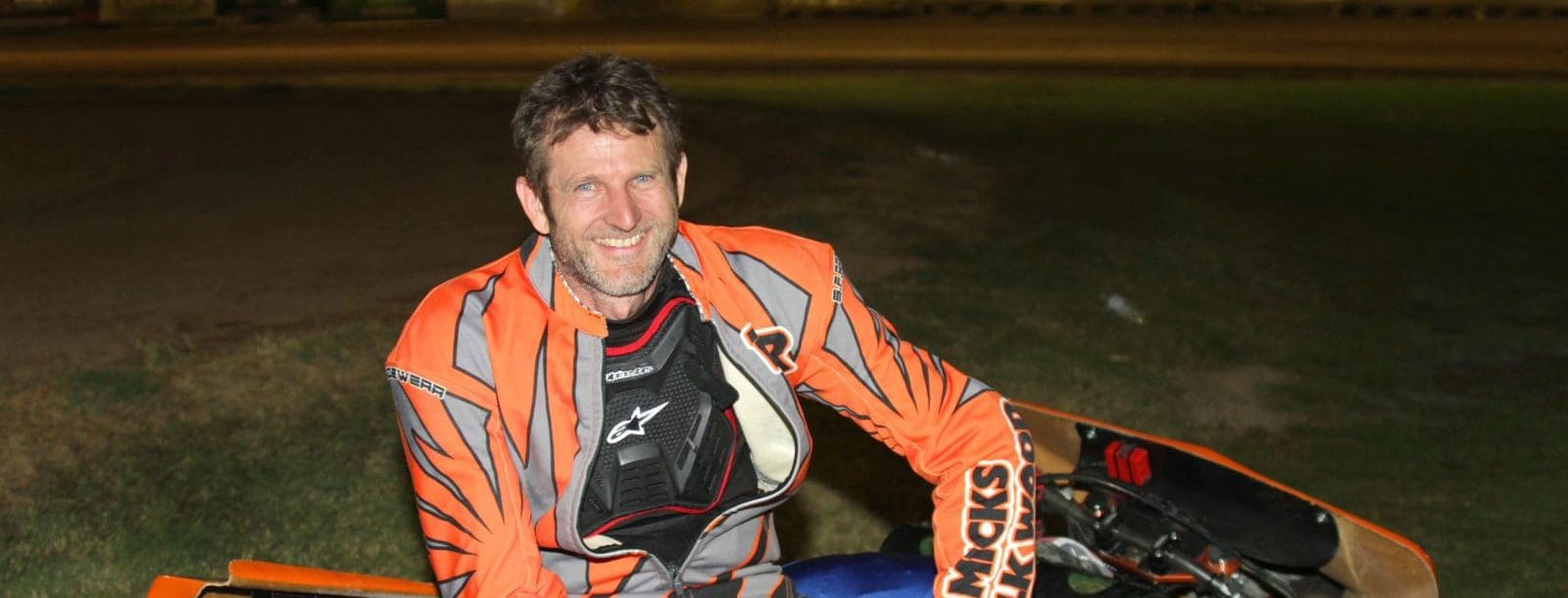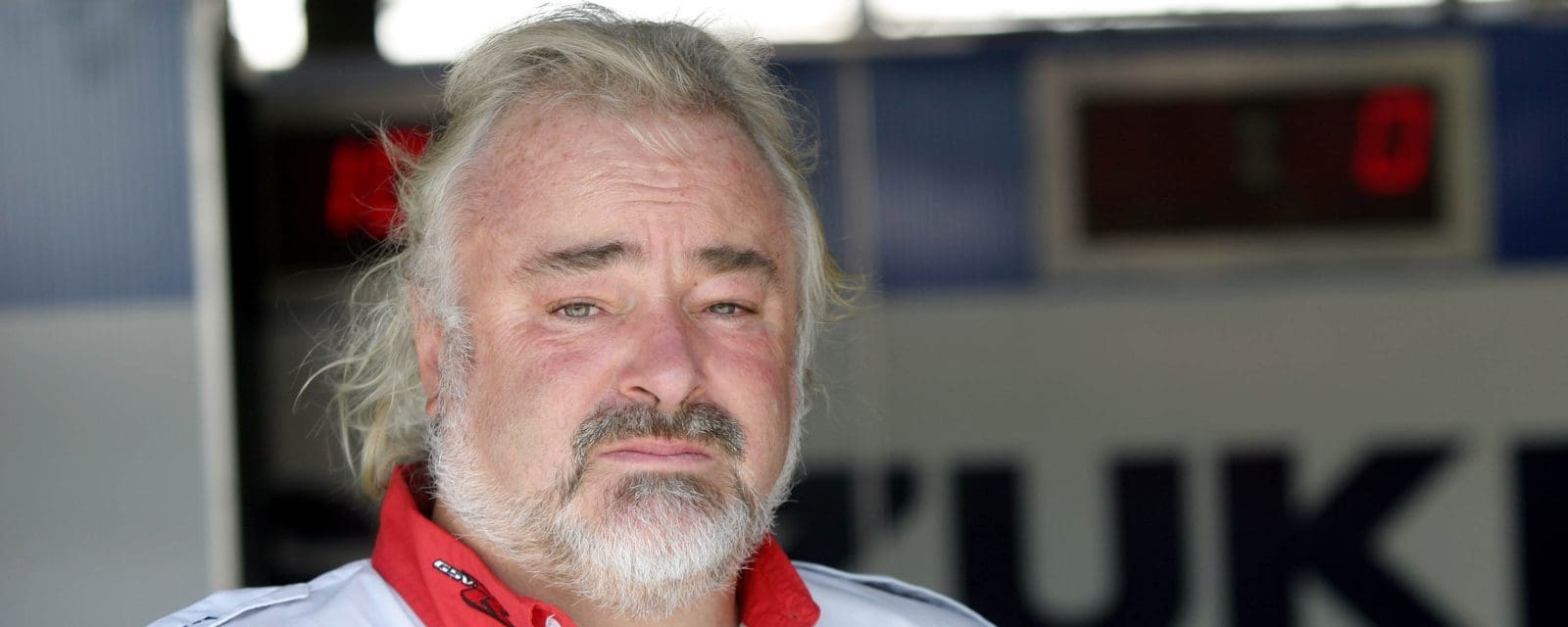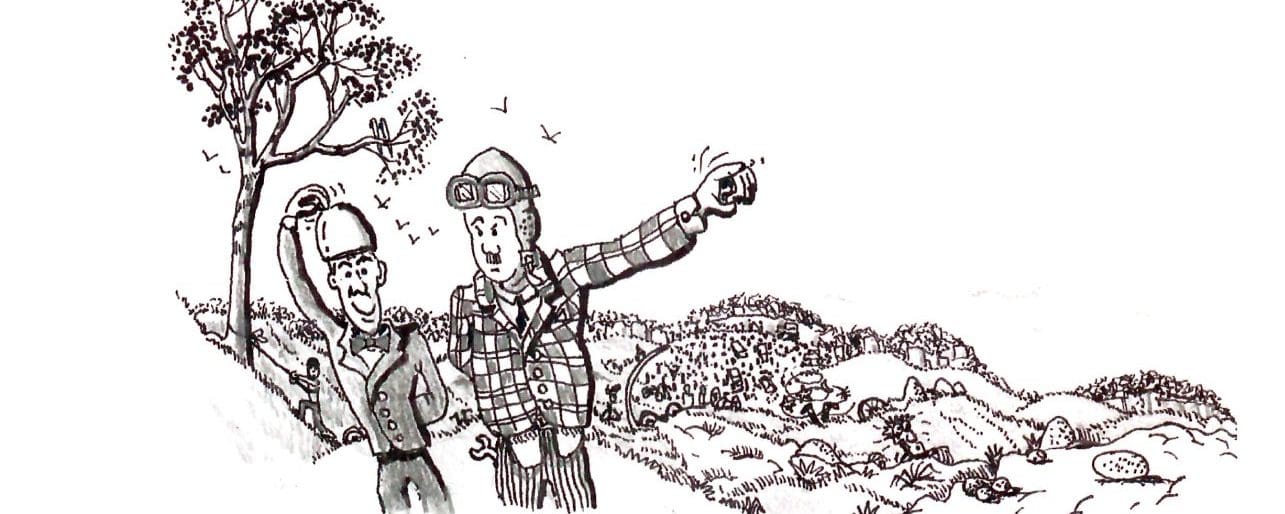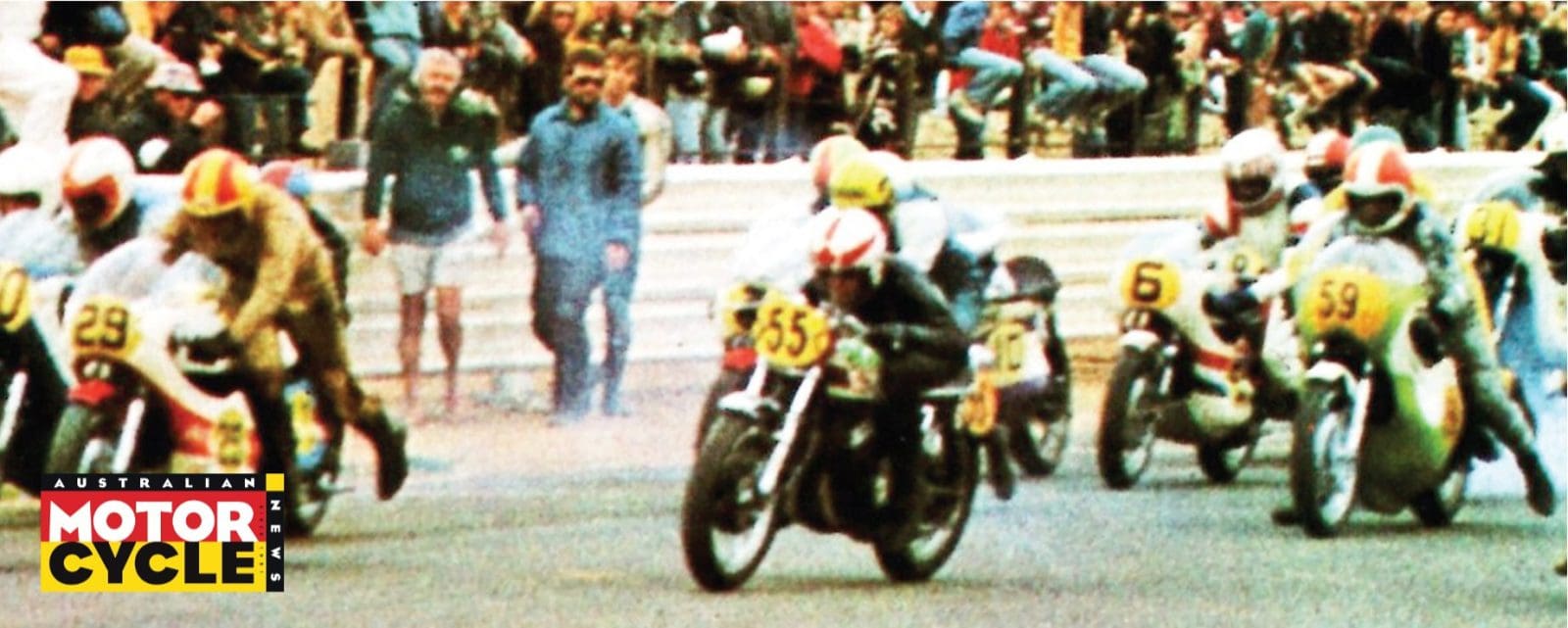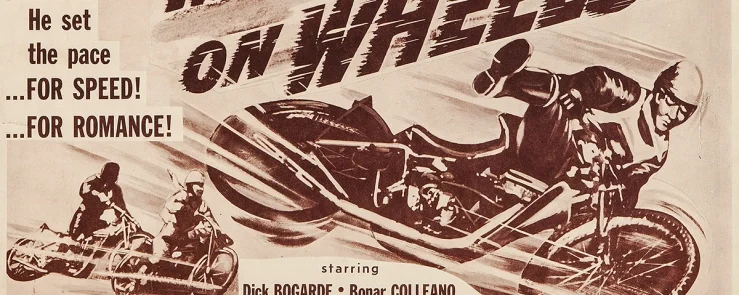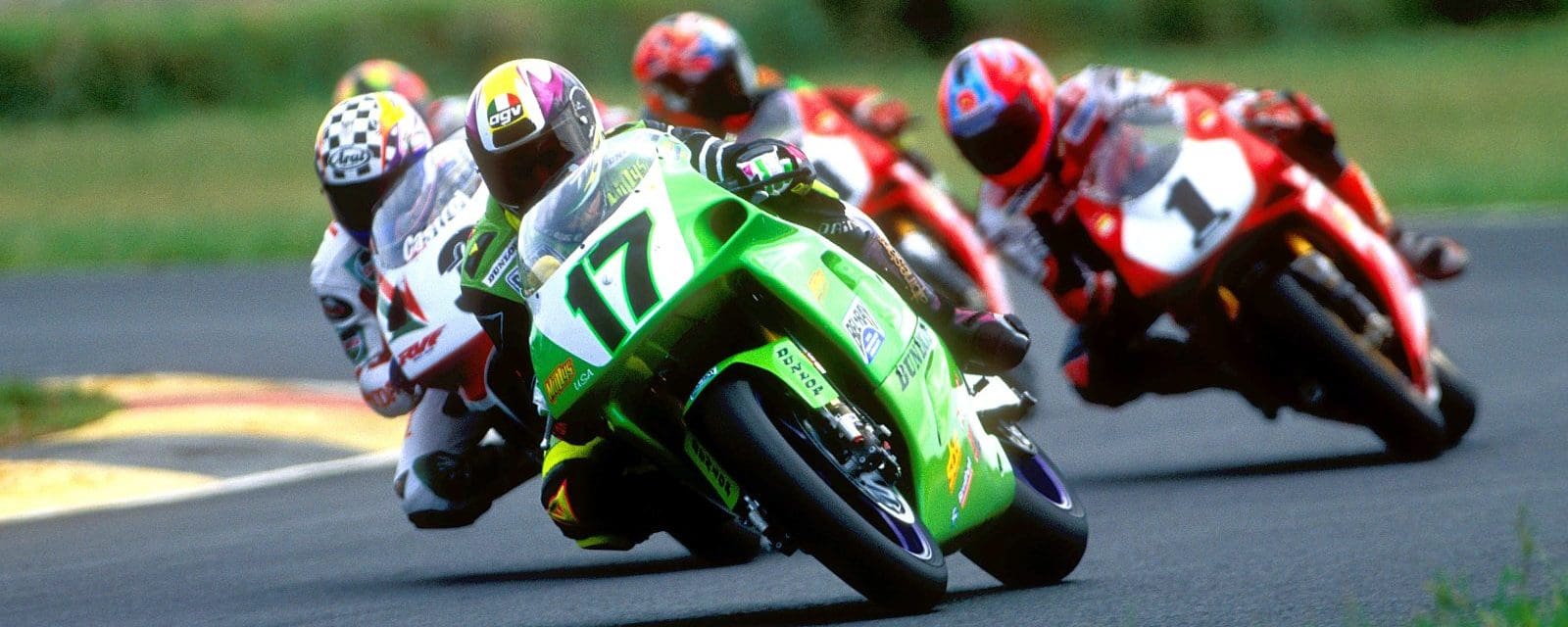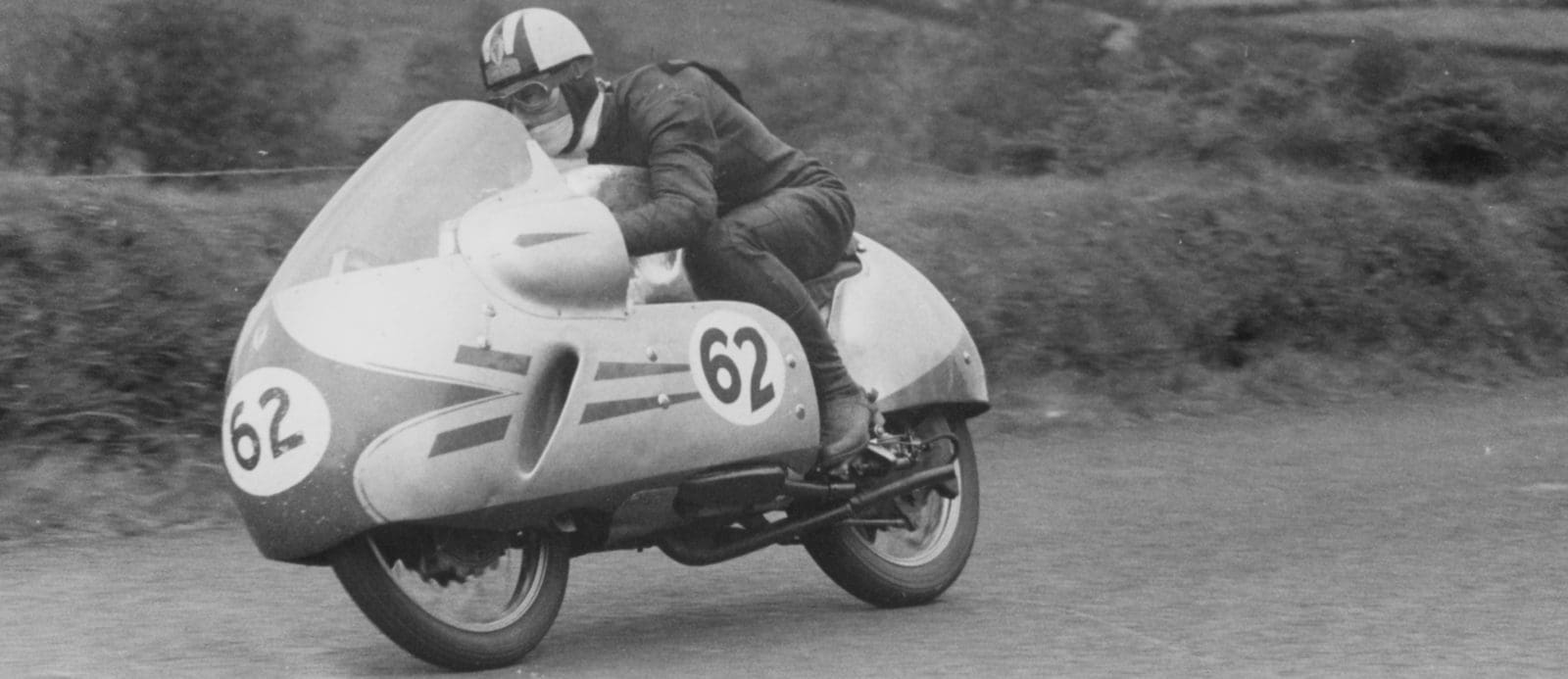Spectacular Sydney rider Max Robinson was in a very strong position to win the inaugural Chesterfield 5000 Superbike series in 1973. But a few months out from the final round, the white-hot Ryde MCC member died.
On Friday 31 August, on the way to contest the Marlboro Two-Hour production race at Calder Park Raceway, his car suffered a rear tyre blow-out near Glenrowan in northern Victoria. He attempted to correct the slide, but the vehicle left the road and Robinson, 29, sustained fatal head injuries. His wife Janice survived the accident. Pole position for the Calder two-hour was left vacant in his honour Ron Toombs, Len Atlee and others wore black armbands.
Fellow Ryde member Garry Thomas was competing in an enduro that sad weekend. “Max was the bloke who got me into riding,” remembers Garry. “I was into sailing as a kid, but Max had a BSA that he rode around the Morrison Bay tip so I got a Royal Enfield and joined him; that’s how it started for me. Kel Carruthers lived nearby at Gladesville and he rode with Max’s older brother Tom. “Max was a great friend of the Carruthers,” says former Ryde MCC secretary, Dave Elliot. “Max raced a lot of dirt-track in the 60s, as well as hill climbs, scrambles and club gymkhanas. He ended up racing the Carruthers Honda 250-4 that Kel rode to so much success.”
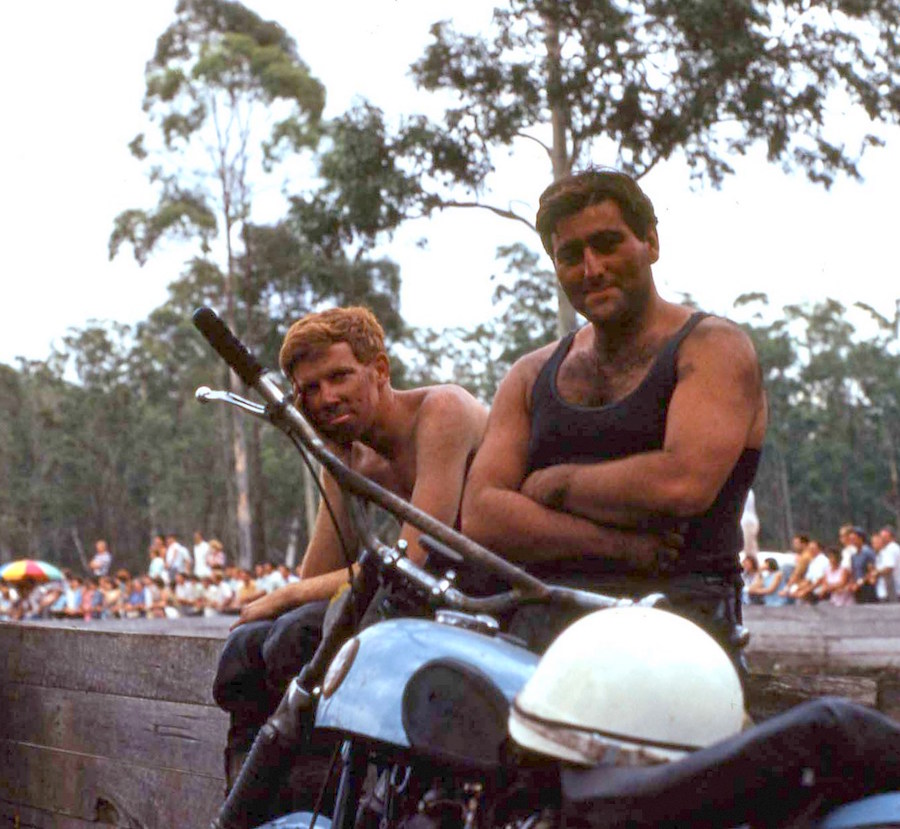
Garry Thomas remembers Max as a regular bloke. “I was a wall and floor tiler, he was a fitter and turner. He was a year older than me, and we started racing about the same time. We joined Ryde and I remember going to the monthly club meetings at the school of arts at Top Ryde as a passenger in Max’s dad Triumph Tiger 100 sidecar! In fact, Max use to ride me around all over Sydney in that thing! Max’s dad was a carpenter and a great bloke, just like Max.
“I remember when Max asked me to go to Europe with him in 1969, and I declined. I was quite happy racing in Australia, it was a good time for the sport here. I had no interest racing in Europe. It was something I regret when I look back on it, because Max was alone and it didn’t go well for him. He finished second in the 1969 Bathurst 125 Grand Prix and he was in good form before he left. He took a Manx Norton with him to Europe but he was only away 18 months.”
Robinson was soon back on song at Bathurst in 1971, finishing third behind racer winner Tony Hatton and Brian Martin in an all-Honda CB750 podium in the Unlimited Production race. In 1972, Max and Garry Thomas finished second outright in the Castrol Six Hour aboard a Honda CB750. Six months later, Max shot to superstardom for the first time in his career. In rounds two and three of the inaugural Chesterfield 5000 Superbike Series, he was on fire aboard his Honda CB750-based bike. For the first time ever, a racer was sliding a big-bore four-cylinder roadster like a dirt-tracker, setting the series alight.
Going into the final Chesterfield round on 2 December 1973, Max had led the overall points standings 64 to Len Atlee’s 63. Max had switched to a Z1-900 for the latter rounds after gaining employment at Kawasaki NSW. Riding with extraordinary confidence, Max was odds-on to defeat Atlee’s Norton.
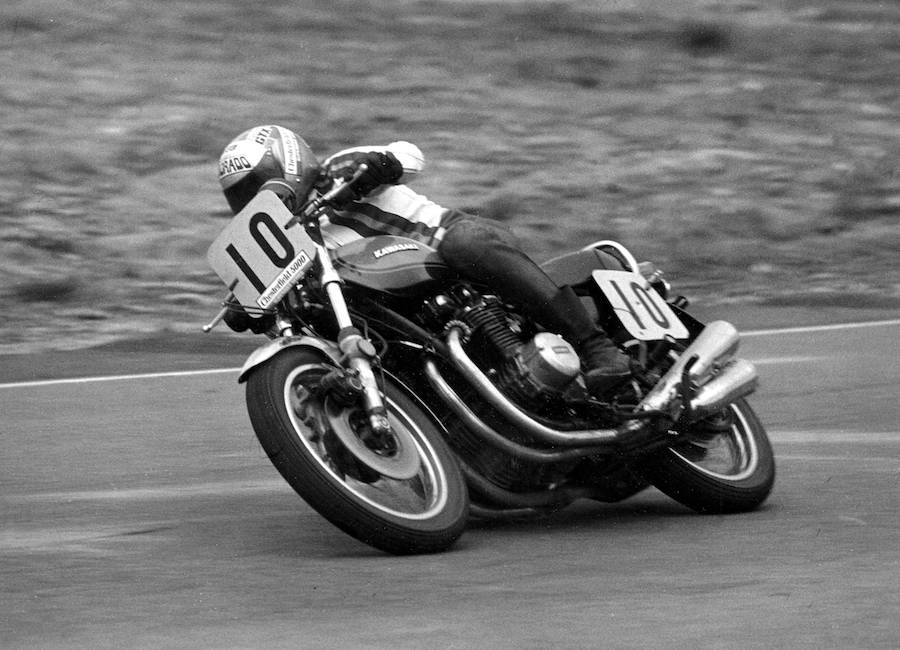
Up until his death, Max was the form big-bore rider in the country. In addition to the Calder Two-Hour that he was favourite to win, he was set to win both the Chesterfield Superbike Series and tipped to claim October’s Castrol Six Hour. The sport had lost one of its great late bloomers. The inaugural winner of the Chesterfield series Len Atlee is quite open about how he won the world’s first superbike championship.
“I won the world’s first superbike series, yes, but only after Max Robinson got killed in that car accident before the final round. The way his was sliding his Honda 750 around in those early rounds was unbelievable, and I had a ringside seat to it.”
The loss of Max was felt deeply across the sport and the industry. As then Kawasaki NSW sales manager Brian Proctor said, “Max was our top rider, and a major member of our staff. His death has left quiet a hole here, one we will probably never be able to fill. But it’s as a friend that we will really miss him. Max was a bloody great bloke, one of the best.”
By Darryl Flack
